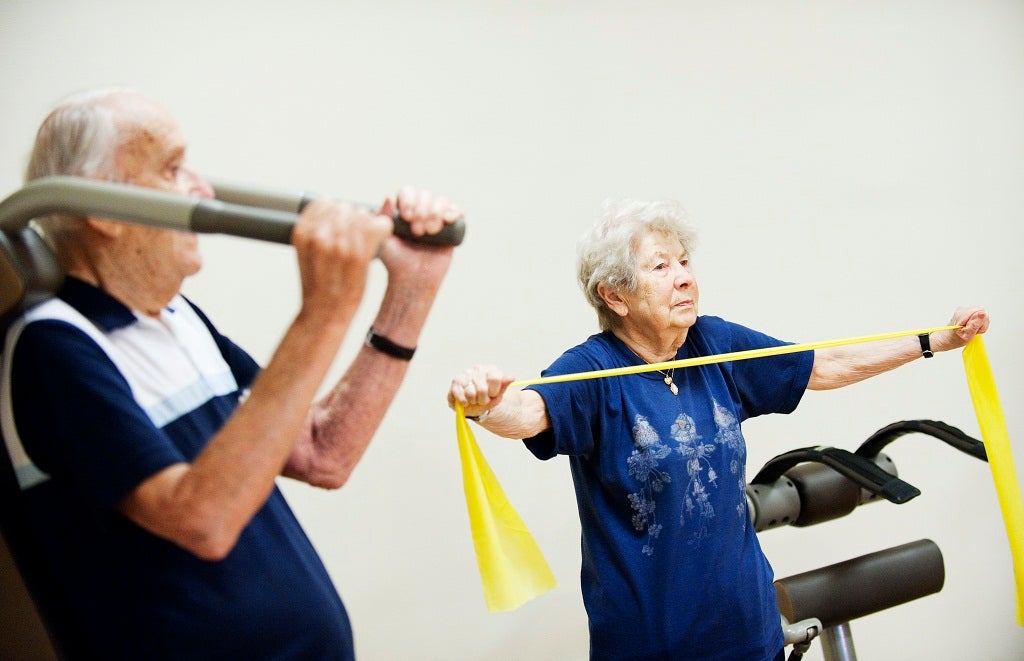Oldsters are wrong to fire shots at their offspring
An email from a grandfather bitterly disappointed in his children has reignited the young vs. old debate, and Philip Roth is showing his lighter side

Not so long ago, the eminent writer and thinker Martin Amis predicted that a civil war between the old and the young was on its way. The problem, he said, was that the sheer number of pensioners clogging up the pavements and restaurants would cause the younger generation to rise up in anger.
As it turns out, the first shots in the coming generational war have been fired by the oldsters. A 67-year-old retired naval officer, Nick Crews, has written an embittered email to his three adult children, aged between 35 and 40, and has allowed it to be published in the Daily Mail. His rant against the failures of his children has struck such a chord that he is now something of grizzled poster-boy for ageing, disappointed parents across the country.
One should probably look the other way. Family relationships can get a little rough after children reach adulthood, and make their own way in the world. Each generation can feel let down by the other. The young look back and blame their upbringing for their problems. The old see the young as feckless and self-indulgent. The poison can run deep.
Normally, it would be unwise for an outsider to comment: most families are weird and complex. The case of Mr Crews is different. He has been prepared to expose his children, and their perceived failings, to public gaze. It has become a generational statement. By the same standards of openness, I can presumably describe him as a thoughtless and sanctimonious old fool.
His criticism of his children is wide-ranging and pitiless. None is “properly self-supporting”. He and Mrs Crews had done their best for their children and had hoped to see their grandchildren in happy and stable homes. Instead, each of their children “crashes from one cock-up to the next” in a “never-ending bad dream of domestic ineptitudes”. Because of what he calls, rather unpleasantly, “copulation-driven” events, his grandchildren, “lovely little people”, have been let down.
He signs off with the request that none of his children gets in touch with him until they have some kind of success or achievement to report.
No doubt there will be grandparents cheering Mr Crews for coming out and saying what many of them think about their adult children, but have always been too nervous to articulate. It is, after all, comforting to look back smugly at your own life from the safety of age, and conclude that you made a better fist of things than the next generation has. It is tempting, particularly for a man it seems, to look at those floundering through their thirties, as many people do, and to conclude that in his day he was stronger, more responsible.
It is also stupid and wrong. Reacting with a dignity which his father seems to lack, Crews’s son Fred has pointed out that if he and his sisters lack confidence as adults, it is just possible that the way they were brought up has had something to do with it.
What the older Crews has failed to see is that everything is different today: the pressures, the expectations, the options, the temptations, the career timetable. The crashes and cock-ups may well in the end produce kinder, more emotionally mature adults – people who would not, for example, publicly humiliate their families in the press.
In fact, if anyone has been domestically inept, it is the father. For all his sentimental guff about “lovely little people” being let down, Mr Crews has made the lives of both grandchildren and children trickier than it needed to be with his aggressive, foghorn moralising.
He has, in one way at least, behaved in a thoroughly modern way. Like a celebrity on a reality TV show, he has seen it as his right and duty to share his innermost feelings around, whatever the consequences.
The lighter side of Roth
In a fictional portrait of her former lover Philip Roth, the late Janet Hobhouse once described him as “unnervingly sharp, merciless… a pagan god for whom acceptance, forgiveness, was soft and unnecessary stuff”. His life, she wrote, was one of “grim, even depressing minimalism”, and that perception has been confirmed by those who have known Roth down the years.
Now, belatedly, Roth is lightening up. Following his announcement that, at 79, he is to write no more fiction, he has revealed that his only current project is a novella, being co-written by email with the eight year-old daughter of a former girlfriend.
Roth readers will know just how strange this concept is. There are few writers whose fiction is more uncompromisingly adult in its language, ideas and subject matter.
I hope he is not teasing. The gentle, fluffy, playful side of Philip Roth will be something to behold.
terblacker@aol.com
Join our commenting forum
Join thought-provoking conversations, follow other Independent readers and see their replies
Comments
Bookmark popover
Removed from bookmarks